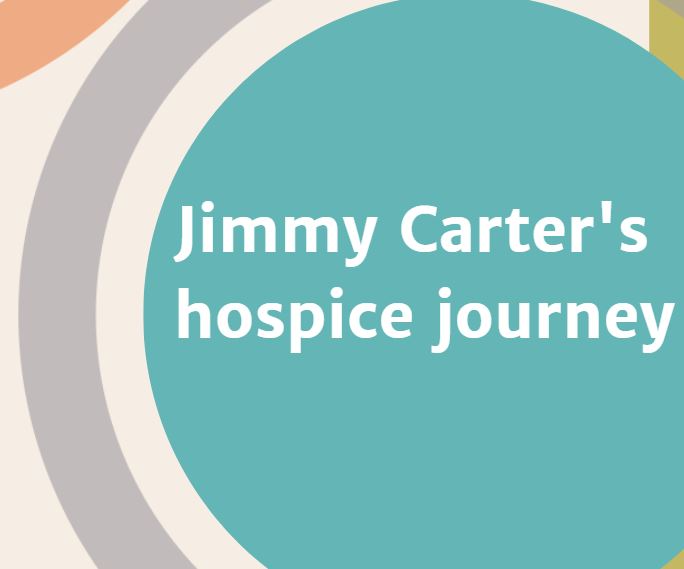Jimmy Carter is still in hospice care, where he has been since February 2023. In August, the former president’s grandson Hugo Wentzel gave an update about Carter’s health to a magazine, saying, “He always wants to be doing something with his mind, so he’s trying to keep himself busy, but he is really sick and getting older.”
We mentioned Jimmy Carter and his decision to begin hospice care earlier this year. His decision to move to hospice care — and to make that information public — has helped people understand what hospice is and why it can help anyone in need of care. It’s cleared up some of the hospice myths, ones that the Centrica Care Navigators hospice team comes across from time to time in working with our patients.
Clearing up the myths
One myth is that hospice has some pre-determined time limit. Hospice care is for those with a life-limiting illness, who have been diagnosed with 6 months or fewer to live. Though Carter is beyond 6 months since the time he started care, that doesn’t mean he has to leave hospice.
When a patient begins hospice care, they meet with their care team, including a physician specializing in hospice. The team works with the patient and their caregivers to develop a plan of care. The physician regularly reviews the patient’s condition to see if it’s appropriate for them to remain in care, based on their health, and their end-of-life wishes and desires.
In Carter’s case, he remains in hospice care, because that’s likely the best option for him at this point. He’s also able to stay in his own home in Georgia. Like him, many patients can stay in their own homes throughout their care, though there are options available if they need more around-the-clock attention. Here in the Centrica Care Navigators coverage area, we offer Centrica Rose Arbor Place.
As his grandson noted, Jimmy Carter may be getting older, but that doesn’t mean he isn’t still trying to stay active and occupied as much as he can. He’s listening to audiobooks and spending time with his wife Rosalynn, as well as other family members and caregivers who visit. Carter has a big family, and he’s able to have someone with him 24 hours a day.
That’s common for many hospice patients. When they begin hospice care, they talk with their team about the kind of care they need, including a focus on their mental, emotional, and spiritual health. The Centrica Care Navigators team has several specialists for those needs: social workers, chaplains, and music therapists. Volunteers can even bring dogs to visit patients.
A hospice patient isn’t shut off from the world or ignored except for an occasional doctor’s visit. Our team works hard to make sure every patient gets the attention they need and can remain engaged in life.
“Staying active” doesn’t necessarily mean going for a walk. But talking with other people, or even watching TV, shows that a patient is interested in being involved in life and interacting with the world around them.
Hospice professionals say Carter’s move into end-of-life care has helped increase awareness of hospice and the value it can provide to everyone who receives it. There’s also been more of a focus on preparing for death and making sure that caregivers and loved ones understand what a patient wants for their death.
In Jimmy Carter’s case, it’s his eulogy, which he allegedly asked President Biden to deliver. Hopefully, though, the day we hear Jimmy Carter’s eulogy isn’t any time soon.
Not every hospice care patient is a former president, but every patient deserves the same care and attention that Carter is receiving. You can learn more about the care that’s offered by Centrica Care Navigators here in west Michigan at our website or by giving us a call at 269.345.0273.




